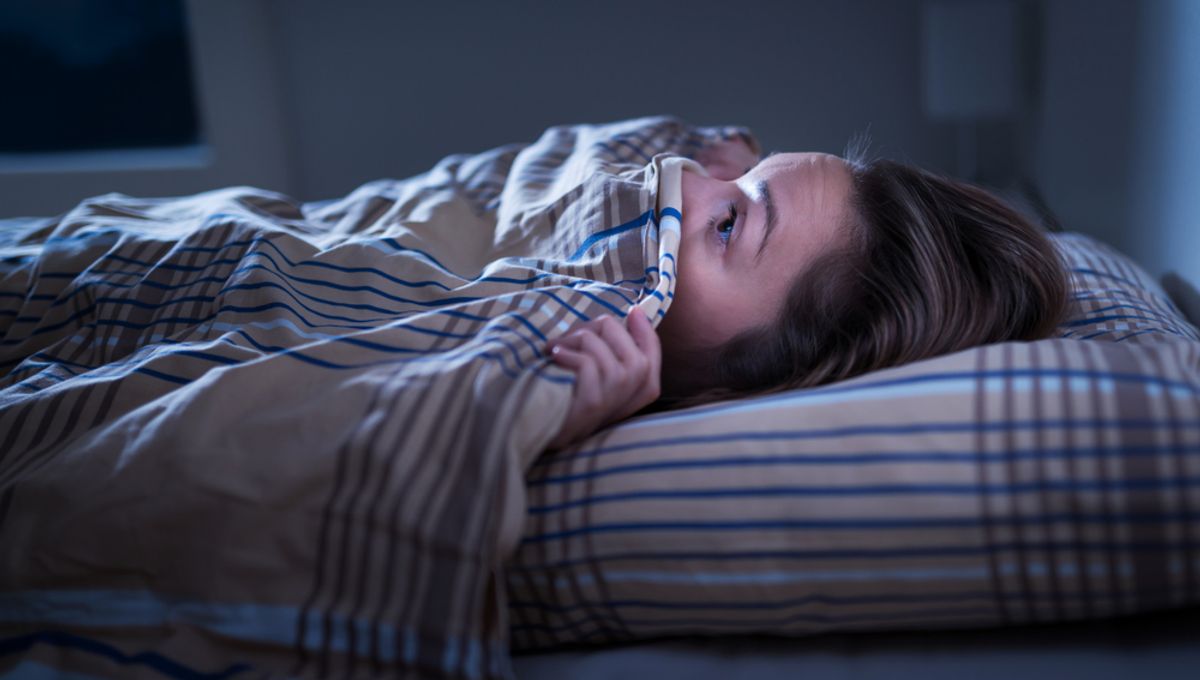
Listening to a particular sound while we sleep could help to stem nightmares, research has suggested. It doesn’t have to be a special sort of sound, it can be literally anything – we just have to associate it with a positive daytime experience, and bingo, we may find ourselves sleeping more sweetly as a result.
This sound-based therapy is called targeted memory reactivation (TMR). In combination with another therapy that is commonly prescribed for people with chronic nightmares, it was found to reduce the frequency of participants’ bad dreams and increase the frequency of more joyous ones.
While this may sound like a neat trick to curtail the occasional night terror, chronic nightmares can impact physical and emotional well-being, meaning this line of research is not just a bit of fun or an easy means to more restful sleep, but also clinically relevant.
Research has suggested that up to 4 percent of adults have chronic nightmares at any moment. Frequent bad dreams are associated with poor-quality sleep, which is linked to numerous health issues, including heart disease, depression, and obesity. Nightmares themselves have been found to impact our health in various other ways, including being associated with cognitive decline in kids.
“There is a relationship between the types of emotions experienced in dreams and our emotional well-being,” senior author Lampros Perogamvros said in a statement. “Based on this observation, we had the idea that we could help people by manipulating emotions in their dreams. In this study, we show that we can reduce the number of emotionally very strong and very negative dreams in patients suffering from nightmares.”
One common tool is imagery rehearsal therapy (IRT), which involves putting a positive spin on a negative experience, effectively rewriting a potentially traumatic scenario.
In the study, published last October, 36 people who had been diagnosed with a nightmare disorder were given an IRT session in which they were asked to create a more positive version of a frequent nightmare. Half of the participants then had a TMR session and were instructed to link the revised version of their nightmare to a sound. The remaining participants were not exposed to sound, and as such acted as the control group.
The sound used in this case was the neutral piano chord C69, which was played through a headband for one second every 10 seconds while participants slept.
Using a combination of the two therapies, researchers saw a reduction in the frequency of participants’ bad dreams and an increase in happier dream emotions.
In fact, the average number of weekly nightmares was more than 15 times less at the end of the study than it was at the beginning, dropping from 2.94 nightmares a week to just 0.19 after two weeks of the combined therapies. The reduction was much less stark for the control group, whose average weekly nightmare frequency dropped from 2.58 to 1.02.
After three months, this reduction was sustained: while nightmare frequency rose slightly to 0.33 and 1.48 for each respective group, it remained much lower than baseline.
“We observed a fast decrease of nightmares, together with dreams becoming emotionally more positive,” Perogamvros said. “These findings are very promising both for the study of emotional processing during sleep and for the development of new therapies.”
The study is published in Current Biology.
An earlier version of this article was published in October 2022.
Source Link: Hearing A Sound With Positive Associations While Sleeping Could Help Silence Nightmares